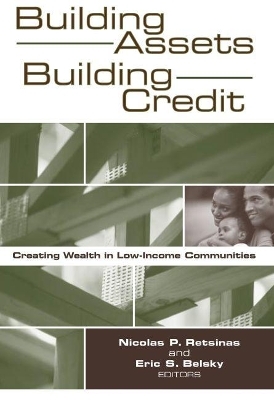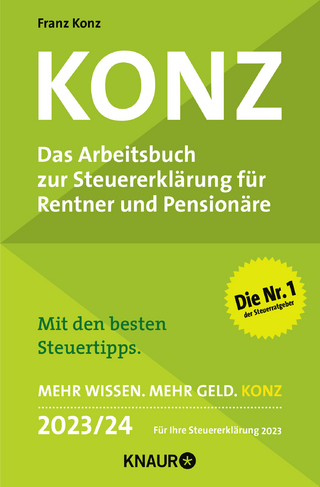
Building Assets, Building Credit
Creating Wealth in Low-Income Communities
Seiten
2005
Brookings Institution (Verlag)
978-0-8157-7409-9 (ISBN)
Brookings Institution (Verlag)
978-0-8157-7409-9 (ISBN)
- Keine Verlagsinformationen verfügbar
- Artikel merken
Poor people spend their money living day to day. How can they accumulate wealth? In the United States, homeownership is often the answer. Homes not only provide shelter but also are assets, and thus a means to create equity.
Poor people spend their money living day to day. How can they accumulate wealth? In the United States, home-ownership is often the answer. Homes not only provide shelter but also are assets, and thus a means to create equity. Mortgage credit becomes a crucial factor. More Americans than ever now have some access to credit. However. thanks in large part to the growth of global capital markets and greater use of "credit scores," not all homeowners have benefited equally from the opened spigots. Different terms and conditions mean that some applicants are overpaying for mortgage credit, while some are getting in over their heads. And the door is left wide open for predatory lenders.
In this important new volume, accomplished analysts examine the situation, illustrate its ramifications, and recommend steps to improve it. Today, low-income Americans have more access to credit than ever before. The challenge is to increase the chances that home-ownership becomes the new pathway to asset-building that everyone hopes it will be.
Poor people spend their money living day to day. How can they accumulate wealth? In the United States, home-ownership is often the answer. Homes not only provide shelter but also are assets, and thus a means to create equity. Mortgage credit becomes a crucial factor. More Americans than ever now have some access to credit. However. thanks in large part to the growth of global capital markets and greater use of "credit scores," not all homeowners have benefited equally from the opened spigots. Different terms and conditions mean that some applicants are overpaying for mortgage credit, while some are getting in over their heads. And the door is left wide open for predatory lenders.
In this important new volume, accomplished analysts examine the situation, illustrate its ramifications, and recommend steps to improve it. Today, low-income Americans have more access to credit than ever before. The challenge is to increase the chances that home-ownership becomes the new pathway to asset-building that everyone hopes it will be.
Nicolas P. Retsinas is director of Harvard University's Joint Center for Housing Studies and a member of the faculty of the Harvard Graduate School of Design, the Kennedy School of Government, and Business School, Massachusetts, USA. Eric S. Belsky is managing director of the Joint Center for Housing Studies and a lecturer in the Harvard Graduate School of Design. Edward Gramlich is a member of the Board of Governors of the Federal Reserve System.
| Erscheint lt. Verlag | 1.9.2005 |
|---|---|
| Reihe/Serie | James A. Johnson Metro Series |
| Vorwort | Edward Gramlich |
| Sprache | englisch |
| Maße | 153 x 229 mm |
| Gewicht | 585 g |
| Themenwelt | Sachbuch/Ratgeber ► Beruf / Finanzen / Recht / Wirtschaft ► Geld / Bank / Börse |
| Sozialwissenschaften ► Soziologie | |
| Wirtschaft | |
| ISBN-10 | 0-8157-7409-5 / 0815774095 |
| ISBN-13 | 978-0-8157-7409-9 / 9780815774099 |
| Zustand | Neuware |
| Haben Sie eine Frage zum Produkt? |
Mehr entdecken
aus dem Bereich
aus dem Bereich
der Bestseller über die richtige Anlagenstrategie
Buch | Softcover (2024)
FinanzBuch Verlag
25,00 €
Buch | Softcover (2022)
Ullstein Taschenbuch Verlag
14,00 €
das Arbeitsbuch zur Steuererklärung für Rentner und Pensionäre
Buch | Softcover (2024)
Knaur Taschenbuch (Verlag)
15,00 €


